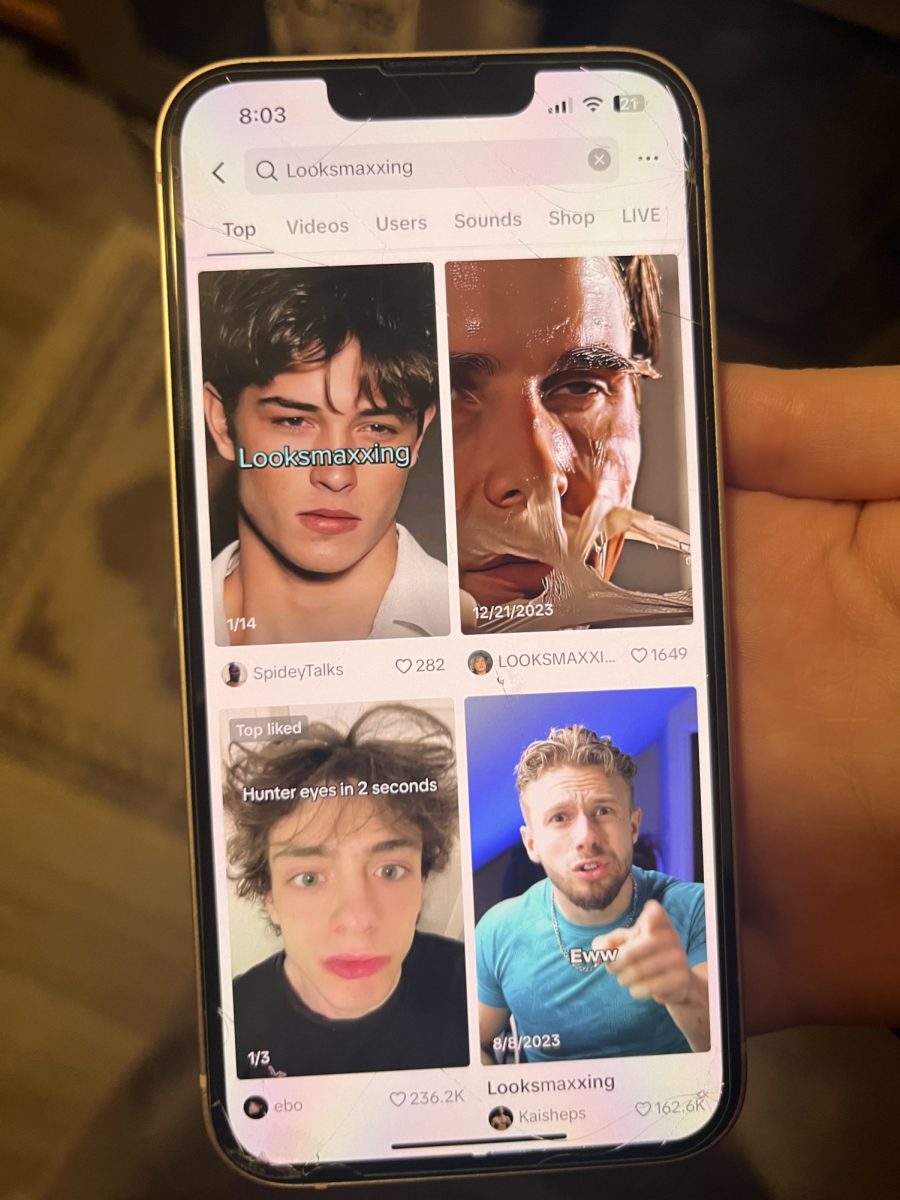The trend of “glowing up,” or an improved transformation in physical appearance, has cemented itself in popular culture. On the TikTok For You Page or even on Instagram Reels, there is an infiltration from a plethora of “glow-up” transition videos. The imposition of these trends leads users to be overly conscious of their physical appearance. “Looksmaxxing,” a concept that has existed for several years now, is the latest of these trends to catapult in popularity and has affected a predominantly male audience, placing too much importance on appearance.
Insecurity and comparison to beauty standards is nothing new. However, it has become a more significant issue with popular platforms like TikTok, where outward looks have become equated with social currency. “Looksmaxxing” is based on lookism, which is prejudice towards people who are deemed physically unattractive and often can intersect with racism and sexism. The term “looksmaxxing,” which focuses on optimizing physical appearance to gain social success, is sourced from incel (involuntary celibate) message boards. These “looksmaxxers” focus on traits such as pupillary distance of one’s eyes, chiseled cheekbones, a sharp jaw, the canthal tilt or angle of eyes, pouty lips and a stunning physique to increase appearance or someone’s “sexual market value.” Some other terms in the community include “mogging,” where you look better than someone else and “mewing,” which is a pseudoscientific tongue exercise believed to define the jaw.
A “looksmaxxer” wants to have traits attributed to winning the genetic lottery, with features regarded as more masculine to attract women. The audience for this content can be as young as 10 years old, planting the seed of insecurity and curating a generation of boys with problematic perspectives before they hit middle school. Unlimited internet access to this information on platforms like TikTok, YouTube and Reddit at a young age only exacerbates the problem. While this community of “looksmaxxers” can offer young boys positive guidance as to how to lightly improve their appearance, with its roots in incel communities, “looksmaxxing,” at a certain point, just ends up fostering misogyny and racism.
In the age of social media, people are more preoccupied with how they look. As more people perceived themselves through the computer screen on Zoom during COVID-19, some plastic surgery offices saw an increase in procedures for jaw augmentation. For those who consider themselves “unblessed” in the appearance department, the movement for “looksmaxxing” has a whole online community of followers to help you maximize your looks on your journey to finally being “hot.” The community shares tips on skincare, diet, exercise and other noninvasive changes to incorporate into one’s daily routine to feel more confident in their appearance and possibly improve their mental health.
Men who partake in these nonsurgical techniques state they are participating in “softmaxxing.” However, quickly becoming overly preoccupied and consumed by appearance is a more telling aspect of the detriment of “looksmaxxing.” This can result in “hardmaxxing,” which includes medical enhancements to achieve the desired look, ranging from nose jobs and fillers to more extreme procedures such as limb lengthening. It also includes disordered eating and overexercising. As a whole “looksmaxxing” promotes features that are not physically attainable for everyone. While “looksmaxxing” may aim to increase confidence, the obsession over appearance harms people’s self-esteem.
Everyone wants to be included and accepted, but why should this depend solely on something superficial? Appearance is fleeting and, frankly, I think people think about themselves too much. Serena Shahidi (@glamdemon2004), a Tiktok star, in what might be one of her most iconic but controversial videos, commented on the relationship of building confidence based on appearance: “Some of you guys have not read a book, don’t know how to do your taxes, have no sense of identity outside the internet and can’t speak in public.” Urging her viewers to expand on their interests outside of appearance, Shahidi ends the video with “Who cares! Spell ‘pharaoh.’ Tell me what the FTC does. Name a single hobby of yours outside of media consumption… Exactly, not hot,” which prompted backlash, as many viewers felt personally attacked. However, this video calls into question — what do we prioritize and why? With trends of mewing to achieve a jawline like supermodels, extreme dieting and “looksmaxxing” at our fingertips, this generation will continue to become overly consumed with how we are physically perceived.
Indira Kar, FCRH ‘25 is an International Studies major from St. Louis, Mo.









































































































































































































